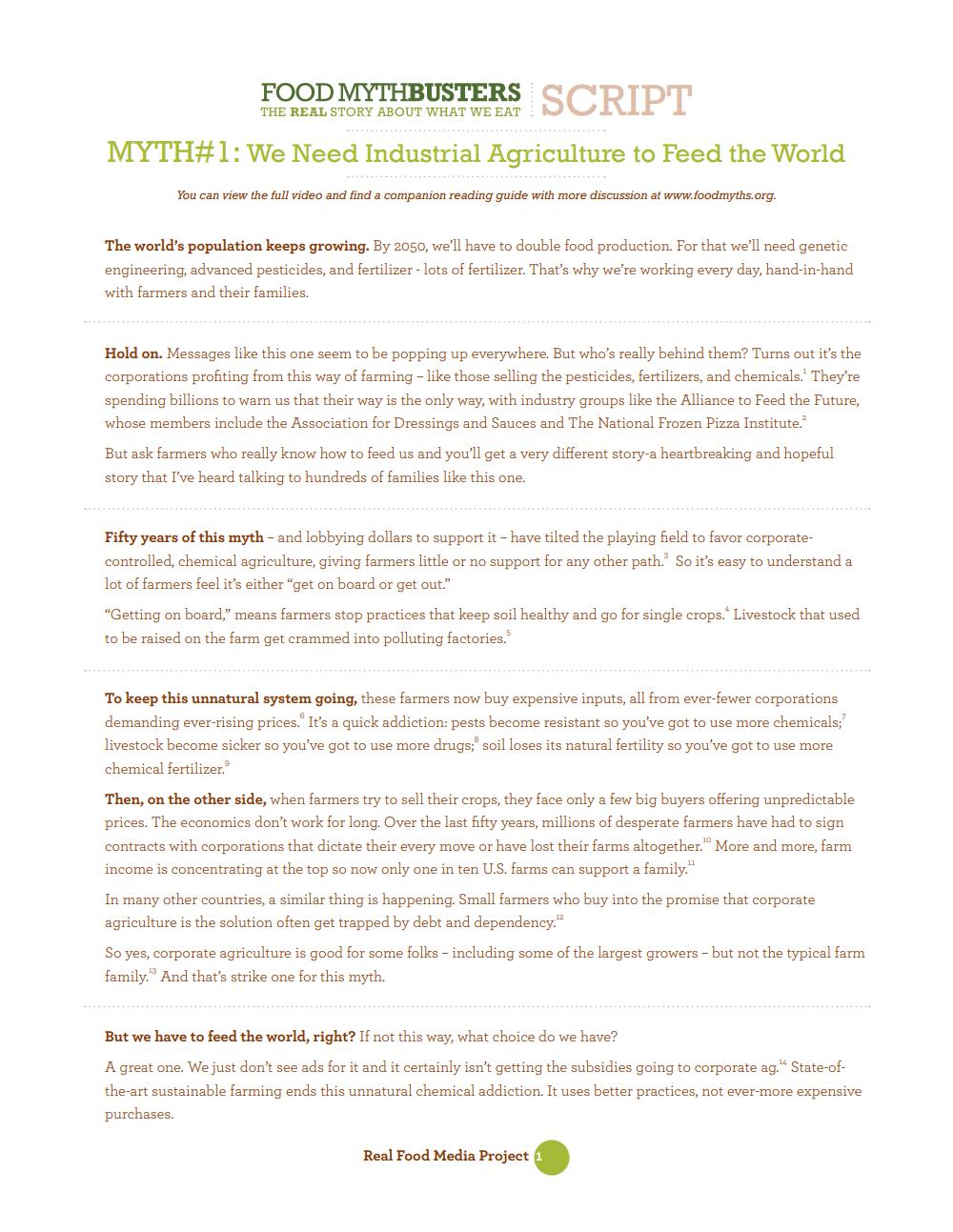________________
FOOD MYTHBUSTERS SCRIPT
THE REAL STORY ABOUT WHAT WE EAT
MYTH#1: We Need Industrial Agriculture to Feed the World
You can view the full video and find a companion reading guide with more discussion at www.foodmyths.org.
The world's population keeps growing. By 2050, we'll have to double food production. For that we'll need genetic engineering, advanced pesticides, and fertilizer - lots of fertilizer. That's why we're working every day, hand-in-hand with farmers and their families.
Hold on. Messages like this one seem to be popping up everywhere. But who's really behind them? Turns out it's the corporations profiting from this way of farming - like those selling the pesticides, fertilizers, and chemicals. They're spending billions to warn us that their way is the only way, with industry groups like the Alliance to Feed the Future, whose members include the Association for Dressings and Sauces and The National Frozen Pizza Institute.
But ask farmers who really know how to feed us and you'll get a very different story-a heartbreaking and hopeful story that I've heard talking to hundreds of families like this one.
Fifty years of this myth - and lobbying dollars to support it – have tilted the playing field to favor corporatecontrolled, chemical agriculture, giving farmers little or no support for any other path. So it's easy to understand a lot of farmers feel it's either "get on board or get out."
“Getting on board," means farmers stop practices that keep soil healthy and go for single crops.* Livestock that used to be raised on the farm get crammed into polluting factories.
To keep this unnatural system going, these farmers now buy expensive inputs, all from ever-fewer corporations demanding ever-rising prices. It's a quick addiction: pests become resistant so you've got to use more chemicals; livestock become sicker so you've got to use more drugs; soil loses its natural fertility so you've got to use more chemical fertilizer.
Then, on the other side, when farmers try to sell their crops, they face only a few big buyers offering unpredictable prices. The economics don't work for long. Over the last fifty years, millions of desperate farmers have had to sign contracts with corporations that dictate their every move or have lost their farms altogether. More and more, farm income is concentrating at the top so now only one in ten U.S. farms can support a family."
In many other countries, a similar thing is happening. Small farmers who buy into the promise that corporate agriculture is the solution often get trapped by debt and dependency."
So yes, corporate agriculture is good for some folks - including some of the largest growers - but not the typical farm family. And that's strike one for this myth.
But we have to feed the world, right? If not this way, what choice do we have?
A great one. We just don't see ads for it and it certainly isn't getting the subsidies going to corporate ag." State-ofthe-art sustainable farming ends this unnatural chemical addiction. It uses better practices, not ever-more expensive purchases.
Real Food Media Project 1




